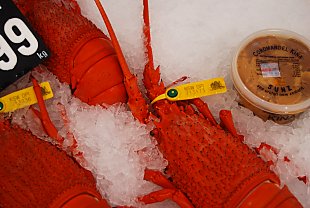Traceability

More and more consumers want to know that what they are buying has been harvested in a sustainable manner and from a sustainable fishery.
Legislation administered by the Dept of Primary Industries requires detailed records regarding possession and sale of fish to be created and maintained from the first point of sale onwards through to the final consumer this allows traceability back to the person who first caught the fish. It also limits opportunities for ‘black market’ seafood to infiltrate legitimate seafood markets. NSW fisheries compliance officers frequently inspect seafood wholesalers, processors, retail outlets, restaurants, cafes and transporters for records and compare or audit these against the actual seafood in stock. This process is important in verifying seafood has been obtained through legitimate sources.
Blackmarket seafood
Only licensed commercial fishers or aquaculture permit holders can legally catch or farm seafood for sale in NSW. Blackmarket seafood refers to seafood caught or grown by those not licensed to do so and sold illegally.
There are strong reasons not to purchase black market seafood, they are:
- It may have been caught by illegal and/or unsustainable fishing methods.
- It will not have been subject to the stringent food safety measures applicable to legitimate seafood business operators and thus pose a very significant risk to your health.
- It is competing with legitimate seafood operators who work very hard to provide safe, quality seafood for consumers. This threatens their viability and hence local employment right back through the chain of supply. It can often mean consumers pay higher seafood prices for legitimate seafood due to reduced sales and turnover brought about by increased competition from illegal seafood sales.
If you suspect blackmarket seafood sales, please phone the Fishers Watch phone line on 1800 043 536.

